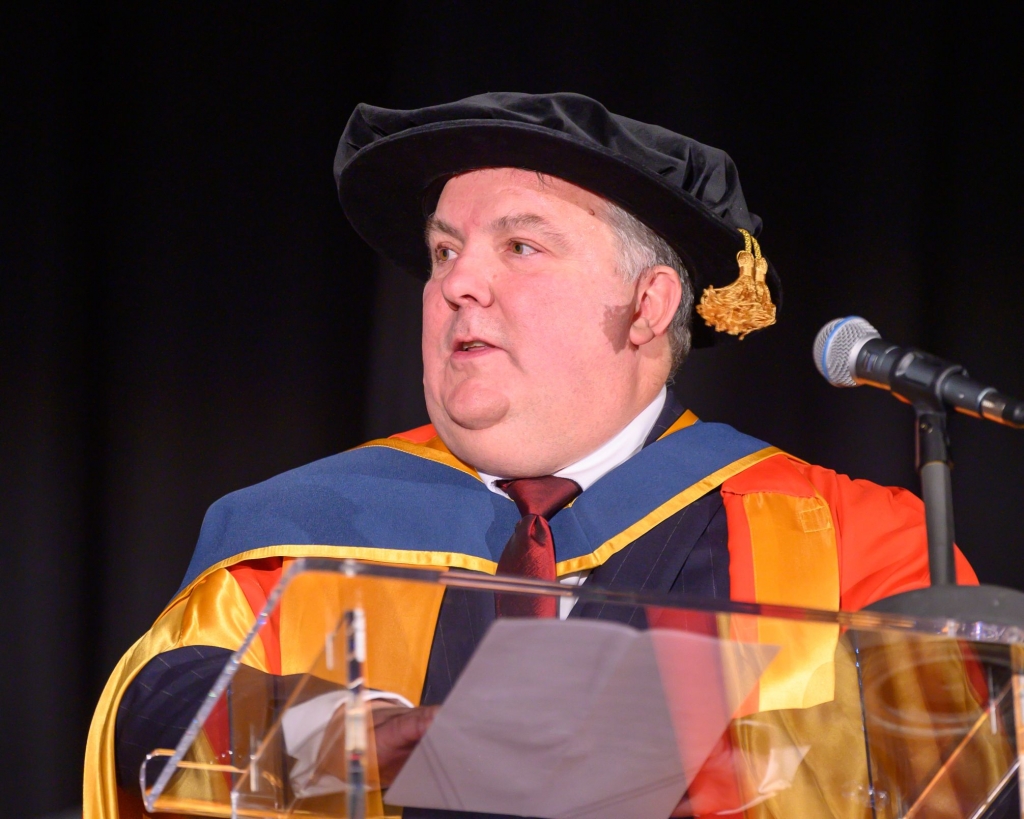Dr Andrew Roberts is the managing director of Bury-based technology company Avoira and an honorary graduate of the University of Salford. In 2011, he received a Highly Commended Certificate for his outstanding contribution to telecommunication from HRH The Duke of Edinburgh as part of the Prince Philip Medal awards.
With more than half of UK businesses struggling to fill vacancies because of a lack of skilled workers, we caught up with Andrew to find out how businesses and universities can work together to solve the skills shortage.
Q: What do you think universities can do to address the skills shortage?
The news to be proud of is that the University of Salford is at the forefront of educational institutions proactively addressing this issue.
I speak from experience, both of the constraints on the industry of the skills gap and the university’s positive actions.
I’m the managing director of a Bury-headquartered, multi-disciplinary technology business, Avoira. We provide solutions that embrace everything from AI-driven speech analytics software, through AV solutions and Video Conferencing, unified communications, and two-way radios.
Whilst we’re thriving, that skills gap means recruitment is a perennial headache.
Avoira’s association with the University of Salford has greatly alleviated that pain. Knowing the strength of the university’s scientific and technological education, we’ve established a strong partnership that stretches back over 25 years.

Over the years this has seen us welcome many students on placement and a number of students as graduate recruits.
Q: What can universities put into action?
We’re active supporters of the Knowledge Transfer Partnership (KTP) which, for those who may not know, partners organisations like mine with graduates and post-graduates (KTP Associates) and their universities.
KTP Associates are charged with delivering a project which will deliver sustained benefits to the host organisation. The KTP is a fantastic way of developing talent and leadership skills within a practical, results-driven setting. Everyone benefits.
I’m also a great fan of degree apprenticeships, again because it’s a win-win-win for student, employer, and university.
Students gain real-world experience tackling real-world tasks and, rather than racking up a sizeable student debt, they get paid to learn.
Further, if they make a positive impression – as most do in my experience – there’s a strong likelihood of a job on graduation and, with that, a firm foothold on a career ladder.
In the current climate, where shortages mean their newly learned skills are at a premium, graduates also hold the whip-hand in the recruitment market.
Q: What is in it for employer and student alike when it comes to a degree apprenticeship?
For employers like Avoira, the benefits are clear. We get to know and nurture young talent, and, more often than not, gain an employee on graduation who is already familiar with, and positively contributing to, our business.
For the universities they provide a degree of certainty – pardon the pun – by all but guaranteeing strong educational and employment outcomes for their students.
Some might argue I’m a little biased. I started life at Avoira as an apprentice – sometime before the advent of degree apprenticeships, it must be said.
I know first-hand the value of apprenticeships and am forever grateful to Bolton College for securing mine. Educationally it was invaluable and in terms of kick-starting my career, well, I run and own the business now!
The successes Avoira has enjoyed and continues to enjoy through our partnership with the University, do mask the wider malaise.
Q: How do we catch up?
Greater Manchester Chamber of Commerce, where I am Bury Local President and Assembly Member, is working on a Local Schools Improvement Plan (LSIP). This has seen businesses across the city region being canvased about the skills shortages they are suffering.
This has revealed weaknesses across a broad range of skills, from the so-called “soft” to leadership, management, and digital. Whilst we’ve known it’s been an issue for some time, those involved were shocked by the scale of the digital skills gap.
But knowledge is power and armed with this live research from the real world, schools, further education colleges, and universities can be informed where the gaps lie within each borough.
They can then refine their curriculum and prospectuses to fill those holes and provide greater educational opportunities and enhanced employment prospects for their students.
Those opportunities will include apprenticeships, degree apprenticeships, and more traditional academic higher education courses.
Q: What will the outcome look like?
Getting it right, or better, at school and college level, will benefit universities, like Salford, which have forged a deserved reputation for the strength of their scientific and technological offer.
With the foundations laid, they’ll benefit from a better informed and enthused undergraduate intake. This can only further drive standards up, enhancing reputations and outcomes.
The timing is good, not least for those who might one day in the future join us as Salford alumni.
As the thinking across the educational spectrum becomes more joined up, the graduates of tomorrow will be better educated and gain skills in fields for which there is huge demand.
They will be impressively employable and will hit the ground running, ready to help UK technology businesses secure the innovation and growth which they and the wider UK economy craves.

 GRADUATE VOICE
GRADUATE VOICE 
 Twitter
Twitter Facebook
Facebook Google+
Google+ LinkedIn
LinkedIn